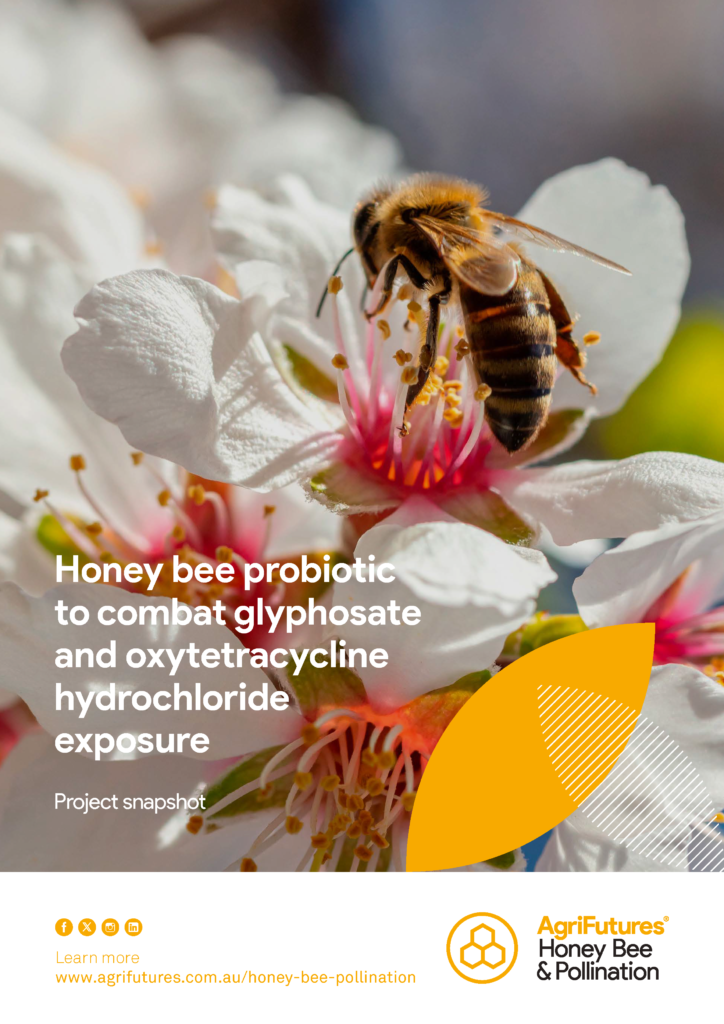Agrochemicals used in Australian agriculture have the potential to harm honey bees, which puts at risk the ability of beekeepers to produce honey and provide pollination services, and thus industry sustainability. Specifically, the antibiotic oxytetracycline hydrochloride (OTC), used to treat European foulbrood, and the herbicide glyphosate can impact honey bee health, behaviours and gut microbiome.
As the gut microbiome is linked to overall animal health and behaviours, the effects of OTC and glyphosate on honey bees may stem from their effects on the gut. Probiotic supplementary feeding to restore the gut microbiome after exposure to agrochemicals could relieve their negative effects.
This project investigated the impact of glyphosate and OTC exposure on honey bee survival, cognition and gut microbiome, and whether probiotic supplementary feeding alleviates negative effects. Although glyphosate, OTC and probiotic supplementary feeding were found to alter the gut microbiome of honey bees, they did not impact honey bee survival or cognition. This finding meant we were unable to determine the potential survival or cognitive performance benefits of probiotic supplementary feeding against these specific agrochemical stressors.
However, we now better understand the impact of the two agrochemicals on honey bees, including their limits, and how probiotic supplementary feeding alters the gut microbiome; probiotics remain a potential strategy to support honey bee health. With further investigation, probiotic supplementary feeding could be ecologically and economically valuable for honey bee care and management.





